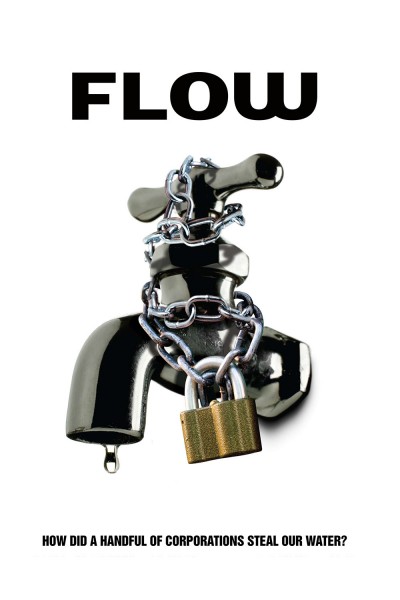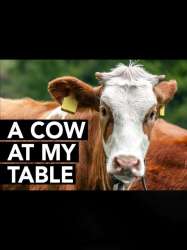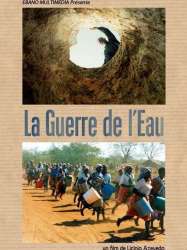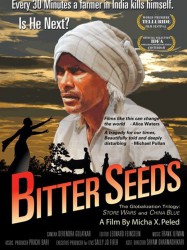Flow: For Love of Water est un film américain de genre Documentaire
Flow: For Love of Water (2008)

Si vous aimez ce film, faites-le savoir !
- Infos
- Casting
- Infos techniques
- Photos
- Vidéos
- Passages TV
- Citations
- Personnages
- Musique
- Récompenses
Flow: For Love of Water is a 2008 documentary film directed by Irena Salina produced by Steven Starr and co-produced by Gill Holland and Yvette Tomlinson . The film features interviews with water and community activists Maude Barlow, Peter Gleick, Ashok Gadgil, William Waterway, Rajendra Singh, and Vandana Shiva. The film won the Grand Jury Award at the Mumbai International Film Festival and the Grand Jury Award for Best Documentary at the United Nations Film Festival.
The film deals with attempts at privatization of water infrastructure. Major businesses depicted in the film are Nestle, The Coca-Cola Company, Suez, and the International Monetary Fund (IMF).
It competed in the Documentary Competition at the 2008 Sundance Film Festival.
FLOW launched a Right To Water campaign to add a 31st article to the Universal Declaration Of Human Rights, Article31.org. FLOW was released theatrically by Oscilloscope Labs in September, 2008, and then invited to screen for the UN General Assembly on the 60th anniversary of the signing of the Universal Declaration of Human Rights, where the first 50,000 signatories to Article31 were presented to the President of the General Assembly, Father Miguel D'Escoto Brockmann.
Commentaires
Postez un commentaire :
Suggestions de films similaires à Flow: For Love of Water
Il y a 8965 ayant les mêmes genres cinématographiques, 8280 films qui ont les mêmes thèmes (dont 30 films qui ont les mêmes 4 thèmes que Flow: For Love of Water), pour avoir au final 70 suggestions de films similaires.Si vous avez aimé Flow: For Love of Water, vous aimerez sûrement les films similaires suivants :

Palestine - Les 18 fugitives (2014)
, 1h15Origine Canada
Genres Documentaire, Animation
Thèmes Afrique post-coloniale, Mise en scène d'un animal, L'environnement, Religion, Le monde du travail, Documentaire sur le monde des affaires, Documentaire sur le droit, Documentaire sur l'environnement, Documentaire sur la guerre, Documentaire historique, Documentaire sur la politique, Documentaire sur la religion, Documentaire sur le monde du travail, Mise en scène d'un bovin, Politique, Religion juive, Mise en scène d'un mammifère
Note71%





L'œuvre présente les efforts des Palestiniens habitant la ville et la région de Beit Sahour, en Cisjordanie, pour démarrer une petite industrie laitière locale au cours de la première Intifada, en cachant un troupeau de dix-huit vaches laitières aux forces de sécurité israéliennes qui considérait la production de laitages comme une menace pour la sécurité nationale d'Israël.

海と夕陽と彼女の涙 ストロベリーフィールズ (2006)
, 1hOrigine Israel
Genres Drame, Documentaire, Fantasy
Thèmes Afrique post-coloniale, L'environnement, Religion, Documentaire sur le monde des affaires, Documentaire sur le droit, Documentaire sur l'environnement, Documentaire sur la guerre, Documentaire historique, Documentaire sur une personnalité, Documentaire sur la politique, Documentaire sur la religion, Politique, Religion juive
Acteurs Mitsuki Tanimura, Yuria Haga
Strawberry Fields points out that strawberries grown in Gaza are the only agricultural product marketed internationally as being of Palestinian origin. One of the major Gaza strawberry farms in located at Beit Lahiya. More than 1,500 tons of strawberries are exported from Gaza to Europe through the Israeli company Agrexco. In order to get overseas, however, the fruits need to pass through the checkpoint that separates Israel and Gaza. The 2005–2006 growing season coincided with the Israel's disengagement from Gaza and the rise of Hamas as the ruling political entity. The armed conflict between Israel and Hamas resulted in the closing of the border checkpoint. The strawberries grown at Beit Lahiya cannot leave Gaza, resulting in significant losses for the farmers and their Agrexco partners. Unable to transport their produce, the farmers have no choice but to dispose of their crop and prepare for the following year’s growing season.

Up the Yangtze (2007)
, 1h33Réalisé par Yung Chang
Origine Canada
Genres Documentaire
Thèmes L'environnement, Documentaire sur l'environnement, Documentaire sur la politique, Documentaire sur les technologies, Politique
Acteurs Yung Chang
Note74%





The setting of the film is a riverboat cruise ship floating up the Yangtze river. Two young people are the focus of the film as they work aboard the ship. One is a sixteen-year-old girl from a particularly poor family living on the banks of the Yangtze near Fengdu, named "Cindy" Yu Shui. She is followed as she leaves her family to work on one of the cruise ships serving wealthy western tourists at the same time as her family is being forced from their home due to the flooding that accompanied the building of the dam. The film shows her acclimatization to the consumer economy of tourism as well as modern technology of the cruise ships, juxtaposed with her family and other older citizens who are displaced from a rural lifestyle to cities where they must pay for the vegetables they used to grow on their own.

Harlan County, U.S.A. (1977)
, 1h43Réalisé par Barbara Kopple
Origine Etats-Unis
Genres Documentaire
Thèmes L'environnement, Film libertaire, Politique, Le monde du travail, Documentaire sur le monde des affaires, Documentaire sur l'environnement, Documentaire sur la politique, Documentaire sur les technologies, Documentaire sur l'anarchisme, Politique
Note81%





La narration des 13 mois de grève des 180 mineurs de Brookside dans le Comté de Harlan (Kentucky).
 , 2h3
, 2h3Origine Etats-Unis
Genres Documentaire
Thèmes L'environnement, Documentaire sur l'environnement, Documentaire sur la politique, Documentaire sur les technologies, Politique, Film catastrophe
Acteurs Daniel Quinn
Note75%






A Cow at My Table (1998)
, 1h30Réalisé par Jennifer Abbott
Origine Canada
Genres Documentaire
Thèmes Mise en scène d'un animal, L'environnement, Documentaire sur le monde des affaires, Documentaire sur la protection animale, Documentaire sur le droit, Documentaire sur l'environnement, Documentaire sur la politique, Mise en scène d'un bovin, Politique, Documentaire sur la nature

The Corporation (2003)
, 2h25Réalisé par Jennifer Abbott, Mark Achbar
Origine Canada
Genres Documentaire
Thèmes L'environnement, Maladie, La mondialisation, Le monde du travail, Documentaire sur le monde des affaires, Documentaire sur l'environnement, Documentaire sur une personnalité, Documentaire sur la politique, Documentaire sur la santé, Documentaire sur le monde du travail, Folie, Le handicap, Politique
Acteurs Michael Moore, Naomi Klein
Note79%





Ce documentaire montre l'évolution des Sociétés anonymes (appelées Corporations en anglais) aux États-Unis, reprenant leur histoire depuis leur apparition avec la Révolution industrielle, où elles étaient conçues pour répondre au « bien public » mais furent détournées de cet objectif par la recherche du profit.

Your Mommy Kills Animals (2007)
, 1h45Origine Etats-Unis
Genres Documentaire
Thèmes Mise en scène d'un animal, L'environnement, Politique, Le terrorisme, Documentaire sur la protection animale, Documentaire animalier, Documentaire sur le droit, Documentaire sur l'environnement, Documentaire sur la guerre, Documentaire historique, Documentaire sur la politique, Documentaire sur le terrorisme, Politique, Documentaire sur la nature
Note65%





The film reports on controversies concerning and within the animal rights movement. These include external conflicts between animal rights advocates and medical researchers and restaurant operators, and internal disagreements within the animal rights movement between the animal shelter operators and the confrontationalists who demonstrate outside homes of corporate opponents. The film also discusses the comparison between animal liberation activists and political terrorists, including the FBI's ranking of animal-rights activists as the nation's No. 1 domestic terrorism threat.

A Water War (1996)
, 1h13Réalisé par Licínio Azevedo
Genres Documentaire
Thèmes L'environnement, Documentaire sur l'environnement, Documentaire sur la politique, Politique
Note28%






Bitter Seeds (2011)
, 1h28Origine Etats-Unis
Genres Documentaire
Thèmes L'environnement, Documentaire sur le monde des affaires, Documentaire sur l'environnement, Documentaire historique, Documentaire sur la politique, Politique
Note76%





Micha Peled's documentary on BT farming in India observes the impact of genetically modified cotton on India's farmers, with a suicide rate of over a quarter million Bt cotton farmers each year due to financial stress resulting from massive crop failure and the price of Monsanto's Bt seeds. The film also disputes claims by the biotech industry that Bt cotton requires less pesticide and promises of higher yields, as farmers discover that Bt cotton requires more pesticide than organic cotton, and often suffer higher levels of infestation by Mealybug resulting in devastating crop losses, and financial and psychological stress on cotton farmers. Due to the biotech seed monopoly in India, where Bt cotton seed has become the standard, and organic seed has become unobtainable, thus pressuring cotton farmers into signing Bt cotton seed purchase agreements with biotech multinational corporation Monsanto.
 Connexion
Connexion